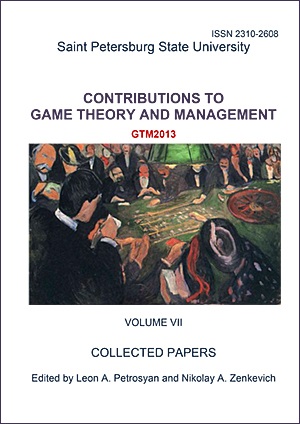Nash Equilibria Conditions for Stochastic Positional Games
Abstract
We formulate and study a class of stochastic positional games using a game-theoretical concept to finite state space Markov decision processes with an average and expected total discounted costs optimization criteria. Nash equilibria conditions for the considered class of games are proven and some approaches for determining the optimal strategies of the players are analyzed. The obtained results extend Nash equilibria conditions for deterministic positional games and can be used for studying Shapley stochastic games with average payoffs.
Keywords:
Markov decision processes, stochastic positional games, Nash equilibria, Shapley stochastic games, optimal stationary strategies
Downloads
References
Downloads
Published
How to Cite
Issue
Section
License
Articles of "Contributions to Game Theory and Management" are open access distributed under the terms of the License Agreement with Saint Petersburg State University, which permits to the authors unrestricted distribution and self-archiving free of charge.




